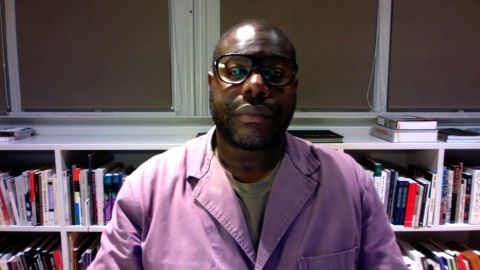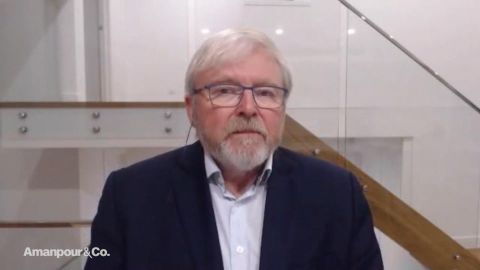Read Transcript EXPAND
CHRISTIANE AMANPOUR: What was the genesis of this? Why did you decide to do this, and when did you start?
STEVE MCQUEEN, FILMMAKER: Well, I started 11 years ago, the planning of it. Well, it took that long in order to sort of get some kind of distance in some way, some kind of perspective on this particular time. So — and also just basically to get the courage to delve into sort of my background and the things that made me who I am today. So, it just took an amount of time. And, also, it was a want and a need and a must. And I knew I had to have the sort of the — the — how can I say, the mileage to put in, to get out, as it were, for these films.
AMANPOUR: They are really extraordinary. I mean, they are phenomenal, beautiful little — stories. I was going to say little stories. They are not massively long films, but they are really packed full of all the experience at that time. And maybe people forgot that they are set in Notting Hill and Shepherd’s Bush, in West London mostly. It was the heart of the Caribbean, West Indian community. And now, of course, it’s very gentrified, very much different. And it really takes you back to that moment, and particularly that clip, where Frank and his Mangrove restaurant becomes the place, not just for eating and socializing, but for activism. Talk to me a little bit about that history, which maybe sometimes we forgot if we ever knew at all.
MCQUEEN: I think — again, I think the whole idea of community was a thing for Frank, the whole idea that people from the West Indian community could come and be in his cafe, a home away from home. But, also, other people migrated there people like Nina Simone, Vanessa Redgrave, Marvin Gaye, Jimi Hendrix. A lot of people sort of came as well as the intellectuals, the Black Panther Party in the U.K. and others, and normal people. So it was this space where everyone was treated equally. And, of course, ideas were sort of shared between dinners and between drinks. And I think that environment for some people became very, how can I say, problematic. And I think that’s why the — sort of the powers at be or whatever were very instrumental in trying to close that cafe.
About This Episode EXPAND
Former Australian prime minister Kevin Rudd explains why he is calling for a royal commission into Rupert Murdoch’s media monopoly. Director Steve McQueen discusses his new anthology film series “Small Axe.” Moderna co-founder and chairman Noubar Afeyan discusses COVID-19 vaccine efficacy, distribution and more.
LEARN MORE


